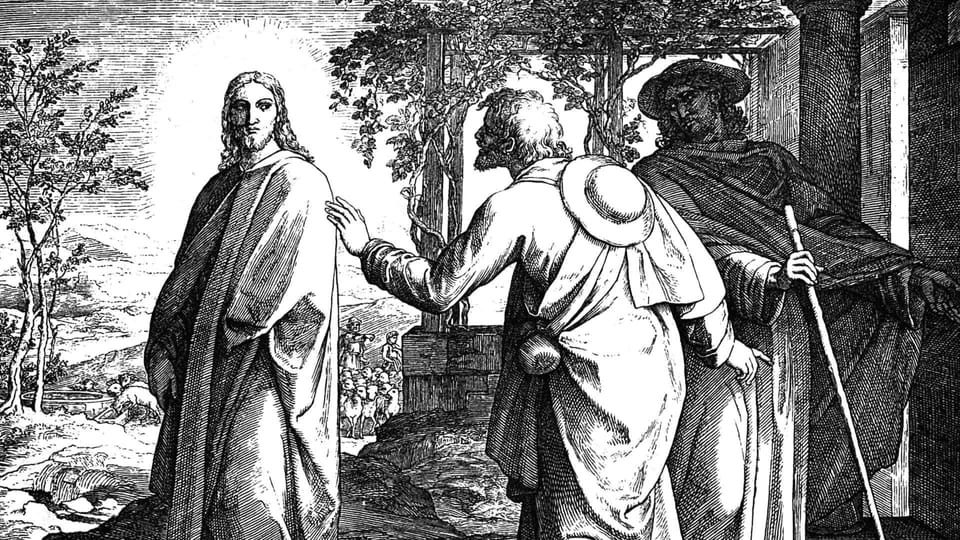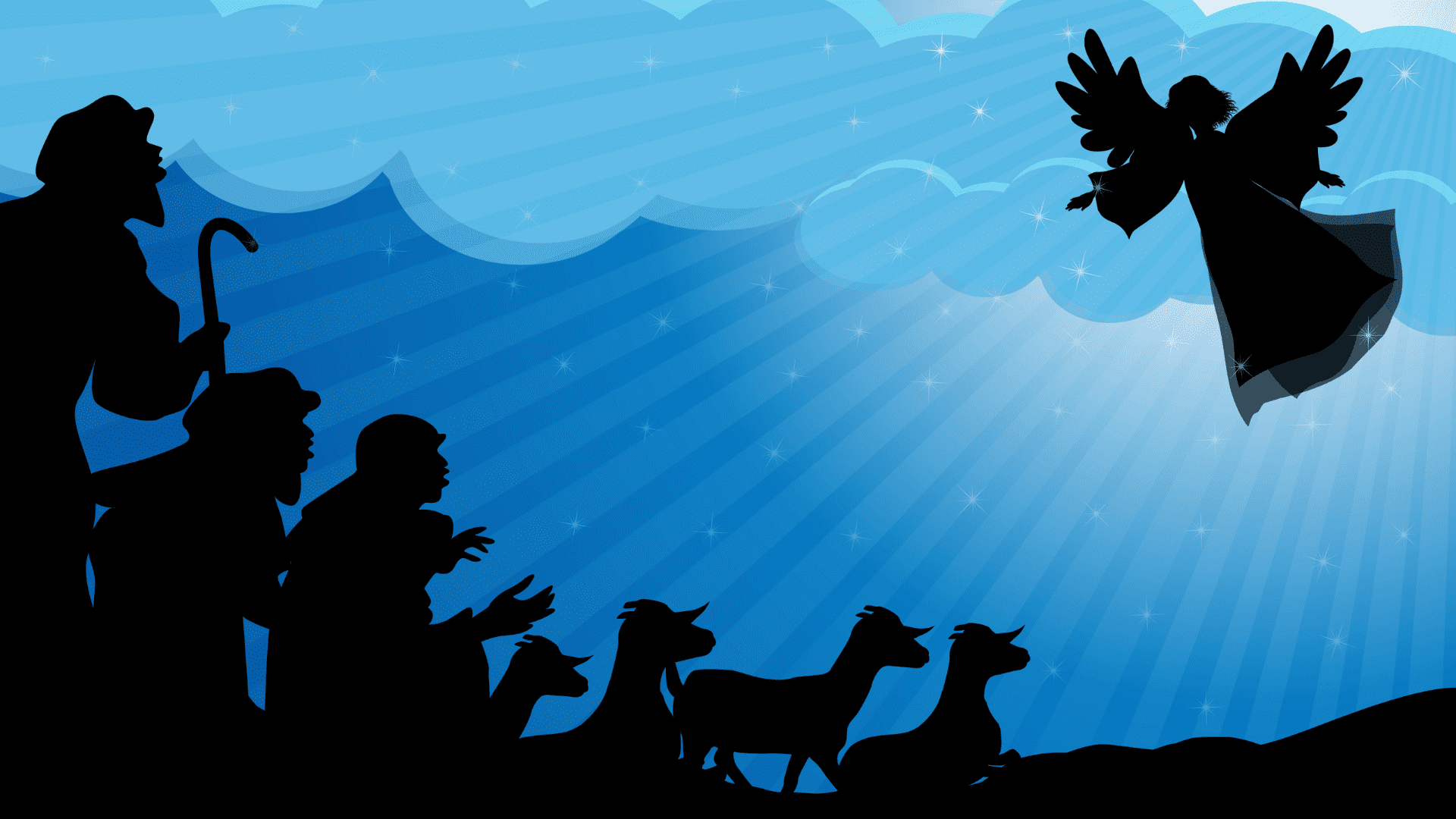What Is God’s Ultimate Answer to Our Problem? (Luke 24:13–35)


Big Idea: Move beyond not understanding to understanding the storyline of Scripture, to gaining spiritual eyesight so you can see.
It’s not hard to understand events, even important events. What’s really hard is understanding what they mean.
For instance: We all understand that a virus broke out in Wuhan sometime late last year. A lot of us knew that event back at the beginning of this year, but few of us understood its meaning. But some people were wise enough that they were able to not only understand the event but the meaning of that event and were sounding the alarm about its consequences very early. Some understood the event only; others understood what it meant and were much better prepared to respond.
It’s the same with what we’re celebrating today. It’s not hard to understand the event. The passage that was just read for us does a good job of describing the actual events in verses 19 to 25:
- Jesus of Nazareth was known as a prophet for what he did and said.
- The chief priests and rulers delivered him up to be condemned, and they crucified him.
- This disappointed a lot of people, who were hoping that Jesus would save Israel.
- On the Sunday after Jesus was killed, women found an empty tomb and saw angels who told them that Jesus was alive.
- Others verified the women’s story and confirmed that the tomb was empty.
Those are the bare facts. No matter who you are — believer or skeptic — those are the facts that you need to wrestle with. The historic evidence is there. There’s very little doubt that these facts are true whether you’re a believer or not.
The trick is what to make of them. And this story leads us through three possible reactions to these bare facts and the conclusions we can make.
Option One: Don’t Understand
The first option is confusion. It’s where things start out in this passage as we meet two men walking to Emmaus, a village seven miles from Jerusalem. As they walked they were discussing what to make of the facts I just mentioned above, because it seemed to make no sense to them at all.
There are a couple of kinds of confusion. One may be that you doubt that these events even happened. That’s not what the two people in the story experienced, but it may be what some of you face. If that’s you, then I encourage you to take a closer look. Look at the historic evidence. The vacant tomb of Jesus is a historic reality, and it’s pretty hard to discount. So take an honest look. I think you’ll discover that there’s no need to be confused about the actual facts. I encourage you to investigate them for your self.
Okay, there’s another kind of confusion, and it’s the kind that the two men in this story faced. They were devastated because they didn’t understand how Jesus’ death fit with who they expected him to be. They were so disappointed. They had expected Jesus to save Israel, and instead, he was killed. They were shattered.
Even though they had heard about the empty tomb, they couldn’t explain it. They were leaving Jerusalem; they’re not sticking around with any sort of hope that something world-changing has happened. They’re going home. They were talking and discussing. They were trying to make sense of everything that’s happened.
Verse 17 even says they looked sad. This was something that really hit them. They had hopes for this Jesus, and their hopes had been crushed. And even though they had heard about the empty tomb, they weren’t ready to believe that this could mean Jesus was alive again. They had doubts. They couldn’t make sense of it all.
There are a lot of people in this category. Maybe they don’t understand the facts as they happened. Or maybe you just don’t know what to make about Jesus. Maybe the story doesn’t make sense to you.
If that’s you, I love that you’re here. This church was built for people like you. Easter is perfect for people like you.
I really encourage you to investigate further. I’d be happy to give you books that could help you.
This is one way to respond to the story of Jesus, and it’s where the two guys in this story started. We all start here. Christianity welcomes skeptics and doubters. So start here, but I encourage you not to stop here. It’s not the best option.
So let’s look at option two in this story.
Option Two: Understand the Storyline
A strange thing happened in this story. The two men started out not understanding Jesus and what happened to him. They didn’t realize that Jesus himself showed up to explain things to them. We read in verses 25 to 27:
And he said to them, “O foolish ones, and slow of heart to believe all that the prophets have spoken! Was it not necessary that the Christ should suffer these things and enter into his glory?” And beginning with Moses and all the Prophets, he interpreted to them in all the Scriptures the things concerning himself. (Luke 24:25-27)
That is one conversation I would have loved to have heard. There are a lot of moments in the Bible I would have liked to have witnessed, but this one might be in the top three. Can you imagine Jesus walking you through the whole story of the Bible and explaining how it all gets tied up with him? That would have been incredible.
Over the past few weeks, we’ve been looking at the story of the Bible. We believe that the Bible is a unified story that includes you. It’s the story of God, the world, and God’s answer to the human predicament. If we are to figure out who we are and what our role is in this world, we need to understand this story. We need this more than ever.
And so we’ve been looking at how this world is glorious and broken. We’ve seen that God launched a plan to rescue the world. God chose a people through which to stage his rescue operation, but we’ve seen them mess up over and over again. It hasn’t been encouraging. But we’ve seen God promise that his plan hadn’t changed, that he was still going to work to rescue the world even though his people had failed so badly.
And here in this passage, Jesus explains it all. I would have loved to have heard it. Jesus helped them see that the whole Bible, from start to finish, is about him. The storyline of all of Scripture – indeed, all history – converge in Jesus Christ. Every page of the Bible is about him – not just the explicit prophecies, but much more. The historical patterns, the promises, symbols, blessings and curses, the pictures of salvation, the shadows and types, the ceremonies – all of them point to Jesus. He’s on every page of every Scripture.
So Jesus that day may have covered some of what we’ve been covering. He may have talked about Abraham, who led his son up Mount Moriah to die, just as God led his one and only Son up the same mountain. He may have talked about the Passover, and how that pointed forward to himself as the true Passover Lamb. He may have talked about the rock that was hit in judgment by Moses in the desert as a picture of what happened when Jesus was struck in judgment on behalf of his people on the cross. He may have talked about the serpent being lifted up in the wilderness, and about David’s victory over Goliath as a signpost pointing to Jesus’ victory as our representative over death and sin. Every page – the ceremonies, the stories, the psalms, the prophecies – point to him.
This is what the whole Bible points to: as the Bible Project puts it, it points to a King who would suffer and die as a rebel on behalf of rebels. Then he would be vindicated by his resurrection, and give life to those who receive it.
As Sally Lloyd-Jones says, “Every Story in the Bible whispers his name. He is like the missing piece in a puzzle—the piece that makes all the other pieces fit together, and suddenly you can see a beautiful picture.”
This is a much better stage than confusion. I hope you are at the point of understanding how the story all fits together, and that Jesus is the ultimate answer to our problem, through whom God rescues the world.
Every week we try to open Scripture and say, “This is your story. This is what Jesus has done for you!” Our goal as a church is that all of us will locate ourselves in the bigger story, the story of God rescuing this broken world through the resurrected Jesus.
Okay, so that’s a much better option. But it’s still not the best one. I want you to go one step farther in this story than understanding the story.
So here’s the best option, and where I hope we all end up today:
Option Three: Open Eyes
I think the two men understood what Jesus explained, but they still didn’t know they were talking to Jesus. We that their eyes were kept from recognizing him (24:16).
But then something surprising happened.
When he was at table with them, he took the bread and blessed and broke it and gave it to them. And their eyes were opened, and they recognized him. And he vanished from their sight. (Luke 24:30-31)
It’s one thing to know about Jesus, even to understand how all the pieces of Scripture fit together. The evidence is important, but it’s never enough. At some point, you need that moment in which not only do you see, but you really see and you believe.
And that’s what happened to these two. They stopped being confused. They understood the storyline, how things all fit together. And then their eyes were opened so that they recognized Jesus themselves.
The results: they went right back to Jerusalem. They regained their hope. They met with the disciples. Their lives were changed.
It’s like what Charles Wesley wrote in his hymn And Can It Be:
Long my imprisoned spirit lay,
Fast bound in sin and nature’s night;
Thine eye diffused a quick’ning ray—
I woke, the dungeon flamed with light;
My chains fell off, my heart was free,
I rose, went forth, and followed Thee.
And that’s what I want for you as well.
Today is the strangest Easter Sunday I’ve experienced in my life. Our world is a mess right now. Many of us — all of us — are struggling. But it’s also an opportunity.
Today is the day you can get clarity on the story of the Bible, a unified story that includes you. It’s the story of God, the world, and God’s answer to the human predicament. If you understand this story, you will understand who you are and how to live. It will give your life hope and meaning. We truly need this more than ever.
And here it is: I believe that the Savior who is at the center of all of Scripture and all the world is present somehow even in this Zoom call, and is ready to open the eyes of anyone who cries out to him so that you will not only understand the storyline, but meet him personally, experience his forgiveness, and have your life transformed.
Will you please pray with me?
If you are in the first category — you don’t necessarily understand or accept what the Bible says about Jesus — I am so glad you’re here. I really encourage you to investigate more. Do the research. It’s one of the most important things you could ever do.
If you understand the story of Jesus, but your eyes have never been truly opened, your life never transformed, then you need to go farther than just understanding. I invite you to pray right now, asking him to open your eyes. God promises that if we seek him we will find him. Turn to the risen Savior and ask him to open your eyes right now. He waits with open arms to receive you.
Move beyond not understanding to understanding the storyline of Scripture, to gaining spiritual eyesight so you can see.
If your eyes have been opened, then join me in praising him.
Worthy is the Lamb who was slain,
to receive power and wealth and wisdom and might
and honor and glory and blessing!…
To him who sits on the throne and to the Lamb
be blessing and honor and glory and might forever and ever!
(Revelation 5:12-13)
Amen.





